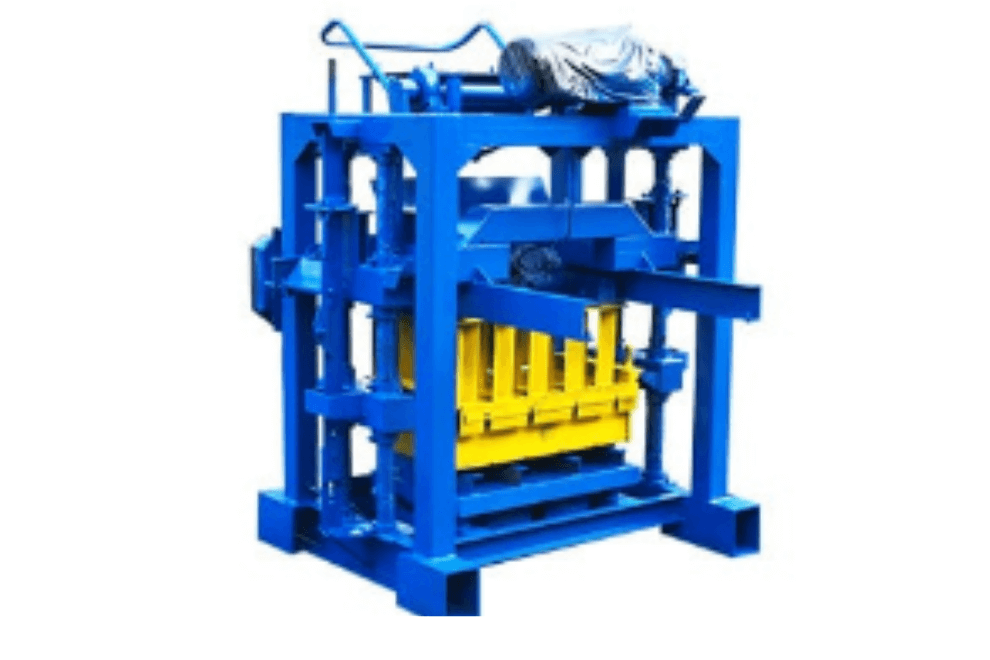How to Train Your Staff to Operate Block Making Machines?

Training our staff to operate block making machines efficiently is crucial for maximizing productivity and ensuring safety. In this article, we’ll investigate practical steps and essential tips to help our team master these complex machines.
By investing in proper training and using quality equipment like those from Lontto USA, we can boost our output and maintain a safe working environment.
Understanding Block Making Machines
Types of Block Making Machines
Block making machines come in several types, each catering to different production needs. The most common are manual, semi-automatic, and fully automatic machines. Manual machines require significant human input for operation and can produce fewer blocks per hour. Semi-automatic machines automate some processes, increasing output and reducing labor needs. Fully automatic machines offer the highest efficiency, often integrated with advanced control systems to manage all production stages.
Key Components and Mechanisms
Block making machines include several essential components that drive their operation. First, the batching system measures raw materials like cement, sand, and gravel. Second, the mixing system ensures these materials blend uniformly. Third, the conveying system transports the mixed material to the block-forming machine, where the pressing and molding mechanisms shape the blocks. Finally, the curing system allows blocks to harden under controlled conditions, ensuring strength and durability.
Training Requirements for Block Making Machines
Safety Training
Safety training ensures staff handle block making machines without risk. Workers must understand machine hazards, including moving parts and electrical systems. OSHA standards specify some of these. Proper PPE (personal protective equipment) use is essential. Gloves, goggles, and ear protection are mandatory. Emergency procedures for machine malfunctions and accidents must be clearly communicated.
Regular drills reinforce these practices. For example, monthly fire drills or emergency shutdown drills help maintain readiness. Training also includes identifying and avoiding common hazards like pinch points and rotating parts.
Operational Training
Operational training helps operators use block making machines efficiently. Staff need to learn about each machine component. For instance, understanding the batching system’s role in measuring raw materials ensures accurate mixing. Training on mixing system operations guarantees proper blending of components.
Conveyor systems training focuses on material transportation between stages. Staff must understand how to prevent blockages and ensure smooth transfers. Training on the block-forming machine includes setting up molds and adjusting settings for different block types.
Curing system training is crucial for final product quality. Operators must oversee temperature and humidity levels to ensure proper block curing. Routine maintenance training is also necessary, covering tasks like lubrication and part replacements to prevent downtime.
Developing a Training Program
Structuring Your Program
First, create a comprehensive training outline. Identify the key skills necessary for operating block making machines including safety protocols and machine operation techniques. Prioritize topics based on complexity and relevance. Define training objectives in clear terms like understanding the batching system or recognizing machine hazards.
Selecting the Right Trainers
Choose trainers with extensive experience in block making operations. Ensure they understand both the theoretical aspects and practical nuances of machine handling. Trainers should also possess strong communication skills to effectively convey detailed instructions and safety guidelines.
Practical and Theoretical Components
Incorporate both practical and theoretical components into the training program. Theoretical training should cover machine mechanisms, safety standards, and emergency procedures. Practical training should emphasize hands-on experience with each component of the block making machine, focusing on procedures like mixing, conveying, block-forming, and curing.
Monitoring and Assessing Progress
Setting Clear Goals and Benchmarks
Setting clear goals and benchmarks helps measure staff progress in operating block making machines. Specific, measurable objectives should define stages of competence with the machines. For example, set initial goals for understanding machine components, followed by operating the batching system accurately.
Track progress through structured evaluations, using pre-defined benchmarks. These benchmarks might include the speed of completing tasks without errors or the proficiency in using safety protocols. Establish timelines for achieving each benchmark to ensure continuous improvement.
Regular Evaluation and Feedback
Regular evaluation and feedback are crucial for training programs. Conduct frequent assessments to gauge staff’s understanding and skill level. Use performance data to provide constructive feedback, helping staff identify areas needing improvement. For instance, if an operator consistently struggles with the mixing system, offer targeted training sessions.
Incorporate both formal assessments like tests and informal evaluations through observation. Ensure feedback is actionable and specific to improve learning. Continuous monitoring and timely feedback facilitate skill mastery and safe, efficient machine operation.
Implement these strategies to ensure staff can operate block making machines effectively while adhering to safety standards.
Conclusion
Training our staff to operate block making machines isn’t just about boosting productivity; it’s about ensuring safety and efficiency. By focusing on mastering key components like the batching system, mixing system, and curing system, we can create a robust training program. Setting clear goals and benchmarks helps us track progress and make necessary adjustments. Regular evaluations and feedback keep our team on the right path, enhancing their skills continuously. With these strategies in place, we’re well-equipped to maintain high standards and achieve operational excellence.
Frequently Asked Questions
Why is training staff on block making machines important?
Training staff on block making machines is crucial for ensuring efficient and safe operation, which directly impacts productivity. Proper training helps prevent accidents, reduces downtime, and ensures the quality of the produced blocks.
What components of the block making machine should staff be familiar with?
Staff should be familiar with key components such as the batching system, mixing system, and curing system. Understanding these parts helps in operating the machine correctly and troubleshooting any issues that may arise.
How can a training program for block making machines be developed?
A training program should start with clear goals and benchmarks to measure staff progress. It should include practical steps for mastering the machine’s components and dynamic training methods like hands-on practice, demonstrations, and theoretical lessons.
What role does evaluation and feedback play in the training program?
Regular evaluation and feedback are essential for enhancing learning and skill development. They help in identifying areas of improvement and ensure that staff are competent in operating the machines safely and effectively.
What types of assessments should be included in the training program?
The training program should incorporate both formal assessments, like written tests or practical exams, and informal observations to gauge staff proficiency and provide constructive feedback.
How does effective training contribute to safety standards?
Effective training equips staff with the knowledge and skills to operate machines correctly, thereby minimizing the risk of accidents and ensuring adherence to safety protocols, contributing to a safer working environment.
Read More: Raising a Newbie to Grind Them






